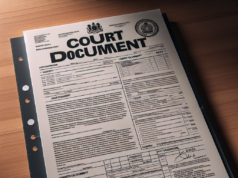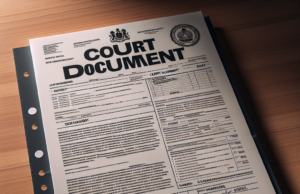
Navigating the complexities of child custody can be one of the most challenging aspects of family law. As parents face the emotional and legal ramifications of separation or divorce, understanding child custody rules becomes paramount. This article aims to provide a comprehensive overview of child custody, including definitions, influencing factors, the importance of legal representation, mediation processes, common misconceptions, and steps to take if custody rights are threatened. By equipping parents with this knowledge, they can better protect their rights and ensure the well-being of their children.
Understanding the Basics of Child Custody: Definitions and Types Explained
Child custody refers to the legal arrangement regarding the care and control of a child, typically following the separation or divorce of parents. There are two primary types of custody: legal custody and physical custody. Legal custody grants a parent the right to make significant decisions about the child’s upbringing, including education, healthcare, and religious instruction. Physical custody, on the other hand, determines where the child will reside and who will provide day-to-day care. Custody can be awarded solely to one parent (sole custody) or shared between both parents (joint custody). Understanding these definitions is crucial for parents as they navigate the legal landscape and advocate for their child’s best interests.
Key Factors Influencing Child Custody Decisions in Family Courts
Family courts consider several key factors when determining child custody arrangements. The primary consideration is the best interests of the child, which encompasses various elements such as the child’s age, health, emotional ties to each parent, and the stability of each parent’s home environment. Additionally, courts assess the parents’ ability to provide for the child’s physical and emotional needs, their willingness to support the child’s relationship with the other parent, and any history of abuse or neglect. Each case is unique, and judges often rely on evidence presented by both parties to make informed decisions that prioritize the child’s welfare.
The Importance of Legal Representation in Child Custody Cases
Having competent legal representation is essential in child custody cases, as the stakes are often high and the emotional toll can be significant. An experienced family law attorney can provide invaluable guidance throughout the process, helping parents understand their rights and responsibilities. They can assist in gathering evidence, preparing legal documents, and representing their clients in court. Furthermore, a skilled attorney can negotiate on behalf of their client, aiming for a custody arrangement that serves the child’s best interests while protecting parental rights. Without proper legal representation, parents may find themselves at a disadvantage, potentially jeopardizing their custody rights.
Navigating Mediation and Negotiation for Custody Agreements
Mediation is often a recommended approach for resolving custody disputes, as it encourages collaboration between parents rather than adversarial confrontation. In mediation, a neutral third party facilitates discussions to help parents reach a mutually acceptable custody agreement. This process can be less stressful and more cost-effective than litigation, allowing parents to maintain a working relationship for the sake of their children. Successful mediation requires open communication, a willingness to compromise, and a focus on the child’s needs. If an agreement is reached, it can be formalized in court, providing a legally binding resolution that outlines custody arrangements.
Common Misconceptions About Child Custody: Debunking Myths
Several misconceptions about child custody can lead to confusion and misinformation among parents. One common myth is that mothers automatically receive custody over fathers, which is not true; courts aim to make decisions based on the child’s best interests, regardless of gender. Another misconception is that a parent’s financial status directly influences custody outcomes. While financial stability is a factor, it is not the sole determinant of custody arrangements. Additionally, some parents believe that a child’s preference will always be honored, but courts typically consider the child’s age and maturity before weighing their opinions. Debunking these myths is essential for parents to approach custody matters with a clear understanding of the legal framework.
Steps to Take if You Believe Your Custody Rights Are Being Violated
If a parent believes their custody rights are being violated, it is crucial to take immediate action to protect those rights. The first step is to document any incidents or behaviors that indicate a violation, such as missed visitation or refusal to allow contact with the child. Parents should also communicate their concerns with the other parent, aiming for a resolution that prioritizes the child’s well-being. If informal discussions fail, seeking legal advice is essential. An attorney can provide guidance on the appropriate legal steps to take, which may include filing a motion for enforcement in court. It is vital for parents to act promptly, as delays can complicate the situation and potentially harm their custody rights.
Understanding child custody rules is crucial for parents navigating the complexities of family law. By familiarizing themselves with the definitions and types of custody, the factors influencing court decisions, the importance of legal representation, mediation processes, and common misconceptions, parents can better advocate for their rights and their children’s best interests. In cases where custody rights are threatened, taking prompt and informed action can help ensure that parents maintain a meaningful relationship with their children. Ultimately, knowledge is power, and being well-informed can make a significant difference in the outcome of custody disputes.




























